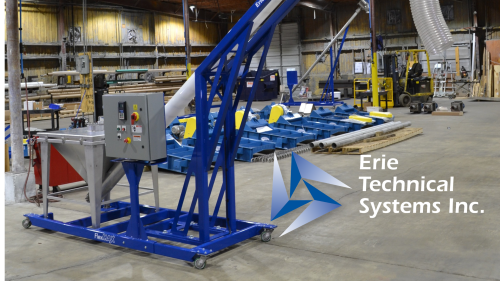Why Flexibility Matters in Bulk Material Handling Systems
In today's dynamic manufacturing environment, adapting to varying demand is crucial. This is especially true in when it comes to bulk material handling, where the diversity of materials, rapid changes in technology, and evolving industry standards pose constant challenges. Flexibility in material handling systems is not just a benefit—it's a necessity for maintaining efficiency and competitiveness. In this blog, we'll explore why flexibility is critical in bulk material handling systems and how it can significantly impact the operational success of businesses.
The Changing Landscape of Bulk Material Handling
Bulk material handling systems are integral to industries such as agriculture, pharmaceuticals, construction, and food processing. These systems are designed to transport, store, and control large quantities of materials. As market demands and production technologies evolve, so do the systems that support these operations. The flexibility of these systems can make the difference between a thriving operation and an obsolete one.
Key Aspects of Flexibility in Material Handling Systems
Adaptability to Different Materials
Different materials have unique handling requirements due to varying characteristics like particle size, cohesiveness, moisture content, and abrasiveness. A flexible system can adapt to handle different materials effectively without the need for extensive reconfiguration. For example, a flexible screw conveyor can be adjusted to handle everything from fine powders to large aggregates by simply changing the screw type and configuration settings.
Scalability for Future Growth
As businesses grow, their material handling needs change. Systems designed with scalability in mind can expand in capacity or capability without requiring a complete overhaul. Modular systems, which are a hallmark of companies like Erie Technical Systems, allow for parts to be added or replaced as needed to increase throughput or accommodate new types of materials.
Integration with Other Systems
In many production environments, material handling systems need to work in concert with other equipment. Flexibility in terms of integration—such as compatibility with various types of packaging equipment or seamless data exchange with enterprise resource planning (ERP) systems—is vital. This ensures that the material handling system enhances workflow rather than complicating it.
Response to Industry Trends and Regulations
Regulatory requirements can dictate how materials should be handled, processed, and stored. Flexible material handling systems are designed to adapt quickly to these regulations without significant downtime or cost. Furthermore, as sustainability becomes increasingly important, systems that can adjust to incorporate eco-friendly practices will be vital.
Benefits of Flexible Bulk Material Handling Systems
Increased Efficiency
Systems that can quickly adapt to different materials or scales based on demand will minimize downtime and maximize output. The ability to handle multiple types of materials with one system reduces the need for multiple machines, saving space and reducing energy consumption.
Reduced Costs
Investing in a flexible system might involve higher initial costs, but the long-term savings are significant. By avoiding the need for multiple systems and reducing downtime during changes, companies can lower their operational costs substantially.
Enhanced Product Quality
Consistent handling of materials is crucial for maintaining the quality of the final product. Flexible systems that adjust to the optimal settings for each material type ensure that handling processes do not compromise material quality.
Improved Worker Safety
Flexible systems often incorporate advanced safety features that adapt to different operation modes. This adaptability can help prevent accidents and ensure a safer working environment.
The flexibility of bulk material handling systems is more than just a convenience; it's a strategic asset. In a world where production demands are continually changing, having a system that can adapt quickly and efficiently is invaluable. For businesses looking to stay competitive and responsive to the market's needs, investing in flexible bulk handling solutions from providers like Erie Technical Systems is a wise decision. Whether dealing with rapid market changes, diverse material types, or regulatory compliance, flexible systems provide the agility businesses need to thrive in the modern manufacturing landscape.

